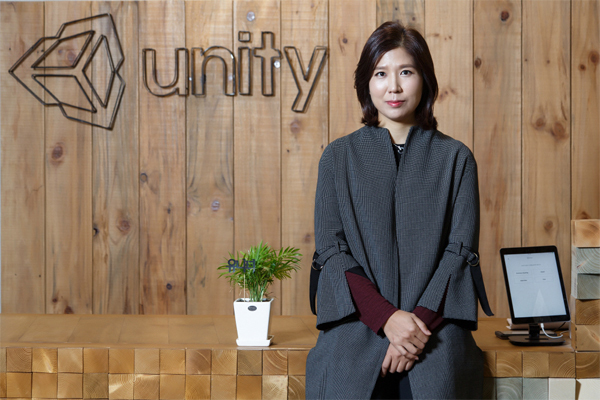Unity’s game engine expands market to VR/AR, but is it profitable?
Unity’ subscription-based business model sacrifices profitability for greater market share
By Kim Byung-wookPublished : Oct. 27, 2020 - 16:30

Unity, a widely used game engine used to create multiple-dimensional, virtual reality, and augmented reality games, has emerged as a new platform for rising industries to test their new technologies such as self-driving cars in virtual reality.
The engine is used in other industries as well, such as films, engineering and construction.
But despite its outreach to industries seeking technological transformations, the company faces a dilemma over its subscription-based business model.
Regardless of cost reductions companies can achieve by replacing physical tests with virtual ones and potential profits they can generate with new business models by utilizing Unity’s game engine, Unity‘s profits are limited, as they receive fixed subscription fees instead of royalties.
For businesses, Unity offers three types of subscription plans: Unity Plus, Unity Pro and Unity Enterprise. Monthly fees are $40, $150 and $200 per user, respectively.
“Charging a certain percentage of profits as royalties to Unity engine users may bring more profits to the company in the short term, but our focus is on the market share. Unity has no plan to make changes in its current subscription-based model,” a Unity Technologies Korea official said.
Despite their reassurances, Epic Games, the company behind Unity’s biggest rival, Unreal Engine, has taken a different, more lucrative route. Unreal charges businesses 5 percent of profits once they start making revenue of more than $1 million per quarter using the engine.
“The 5 percent rate is negotiable and companies can instead make a single payment for license fees for using the engine,” an Epic Games Korea official said.
The policy does come with friction.
Epic Games Korea was sued by PUBG in 2018. PUBG, which developed its eponymous game PlayerUnknown’s Battlegrounds based on Unreal Engine 4, faced enormous fees of 50 billion won ($43.5 million) after the game achieved global success that generated revenue of over 1 trillion-won last year.
If PUBG had developed its game based on Unity‘s engine, it would have owed only 100 million won to 200 million won in subscription fees, according to Unity Korea’s own analysis.
Unity’s direction appears to be received well by its customers, both at home and abroad, searching for opportunities to apply virtual reality and augmented reality technologies to their businesses.
In the construction and manufacturing industry, Doosan Infracore partnered with Unity Korea in August to develop a simulation system based on Unity engine where users can verify the safety of construction sites built inside a virtual reality. In January, Samsung Heavy Industries signed joined hands with Unity Korea to replace conventional 2D blueprints for shipbuilding with 3D modeling using Unity’s game engine.
For the e-commerce sector, LG CNS has developed a digital twin service based on Unity‘s game engine which provides a real-time 3D rendering of logistics centers. Should a problem occur in the conveyor belt, for example, the conveyor belt is immediately colored red, allowing operators to pinpoint the exact location of the problem.
Also, eBay Korea last year launched an AR app “it9” based on Unity’s engine where users can try on sunglasses or arrange a piece of furniture and see if it agrees with the background of their homes.
The auto industry has also taken advantage of the engine, with Hyundai Motor, Kia Motors, Audi, BMW and Volkswagen creating virtual 3D configurations of their vehicles with Unity‘s engine and using the images taken from the configurations for advertising instead of using photographers to take beauty shots, which are expensive.
Also, Volvo, Audi, Volkswagen and Volvo are testing their self-driving technologies such as RGB-D cameras, lidar, radar, IMU and GPS inside virtual spaces constructed by Unity’s game engine without having to conduct test-drives on actual roads.
“Unity‘s subscription-model can generate constant profits as users will need regular updates in the future,” the Unity Korea official said.
By Kim Byung-wook (kbw@heraldcorp.com)








![[Graphic News] More Koreans say they plan long-distance trips this year](http://res.heraldm.com/phpwas/restmb_idxmake.php?idx=644&simg=/content/image/2024/04/17/20240417050828_0.gif&u=)
![[KH Explains] Hyundai's full hybrid edge to pay off amid slow transition to pure EVs](http://res.heraldm.com/phpwas/restmb_idxmake.php?idx=644&simg=/content/image/2024/04/18/20240418050645_0.jpg&u=20240419100350)





![[From the Scene] Monks, Buddhists hail return of remains of Buddhas](http://res.heraldm.com/phpwas/restmb_idxmake.php?idx=652&simg=/content/image/2024/04/19/20240419050617_0.jpg&u=20240419175937)

![[KH Explains] Hyundai's full hybrid edge to pay off amid slow transition to pure EVs](http://res.heraldm.com/phpwas/restmb_idxmake.php?idx=652&simg=/content/image/2024/04/18/20240418050645_0.jpg&u=20240419100350)

![[Today’s K-pop] Illit drops debut single remix](http://res.heraldm.com/phpwas/restmb_idxmake.php?idx=642&simg=/content/image/2024/04/19/20240419050612_0.jpg&u=)